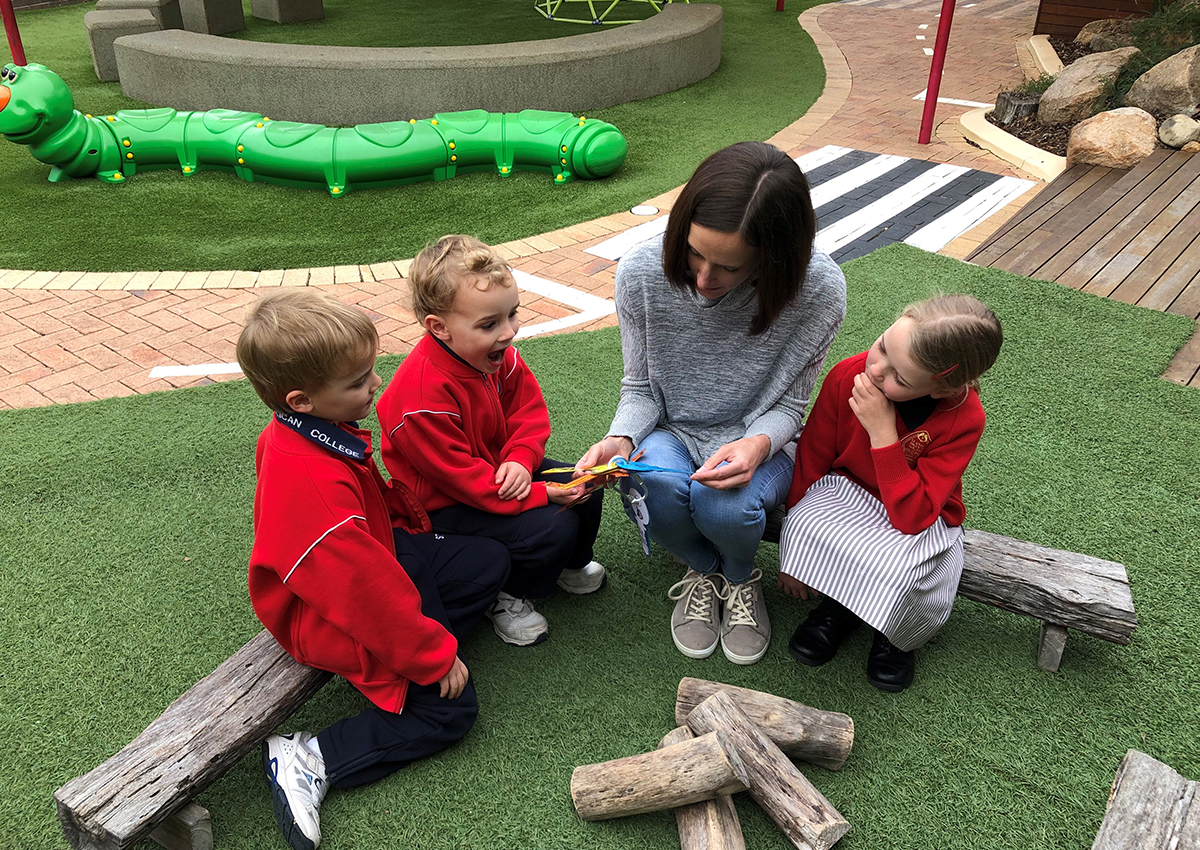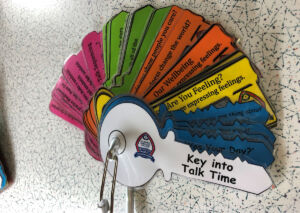At St John’s Anglican College, a K-12 school at Forest Lake in Brisbane’s south-west, parents and teachers are considered “partners” in a child’s education journey.
It’s a concept known in education circles as parent engagement and 50 years of academic research shows when schools do it well, it can significantly improve students’ academic and social outcomes.
St John’s EAL/D Co-ordinator Ronnelle Sanders [pictured below] and her primary school teaching colleagues confirm it’s a winning strategy.
“Parents have more time with their children than teachers do,” Ronnelle explains, “and with the right support, can have a direct impact on the whole child through simple experiences, conversations and routines.”
An experiment that became a permanent approach
The St John’s primary school teaching team have been experimenting with a number of parent engagement strategies over the last two years in a bid to boost the oracy skills of new Kindergarten and Prep students at the College, many who come from families with English as a second language or dialect (also known as EAL/D).
One of the school’s early successes was creating take-home ‘blossom bags’ filled with fun family literacy activities based around a story book, as well as fridge magnets with simple tips for having enriching conversations with children at home.
They also translated parent-specific literacy brochures into different languages and modeled literacy strategies to parents at specially organised family events.
The most recent strategy – laminated “Talk Time keys” with a range of conversation starters for the dinner table and car trips – may just be the most popular one yet.
The keys are divided up into coloured categories, with open-ended questions, requiring a child to answer with more than just a ‘yes’ or ‘no’ and thereby promote “deeper, more meaningful conversations – stimulating a child’s cognitive development,” Ronnelle says.
Parents enthusiastic and supportive
There are now 145 sets of keys in circulation in the school community – some translated into other languages – and parents have responded to them with “enthusiasm”.
Oracy across the college has grown as a result.
“Talk Time Keys are seen in many places around the College, on headrests in cars, on handbags, schoolbags and even prams,” Ronnelle says.
“Parent feedback has urged the staff forward with many more sets of keys planned which are eagerly awaited and asked for regularly by our families.”
Momentum building around parent engagement
St John’s Anglican College is one of many Queensland independent schools to have enhanced their parent engagement strategies as a result of taking part in the Independent Schools Queensland (ISQ) Research-in-Schools Program – an initiative that receives added financial support from the Queensland Independent Schools Parents Network.
Schools that would like to learn more about parent engagement, funding opportunities for school-based research and future ISQ-QIS Parents Network initiatives are invited to register their interest with Shari Armistead, Director (Strategic Relations) – sarmistead@isq.qld.edu.au or call 07 3228 1515.
Our work encouraging parent engagement in schools
ISQ and the Queensland Independent Schools Parents Network work in partnership to enhance parent and community engagement in independent schools.
Read more about parent engagement in our most recent story.
Download our one-page factsheet on parent engagement.
Read in detail about parent engagement and how schools can implement effective strategies in the recently released report The Parent Engagement Implementation Guide by Australian Research Alliance for Children and Youth (ARACY).
There is also a rich well of information and research about parent engagement on our website.
There are also many other wonderful websites with tips and advice for parents who want to connect school learning with life at home, which we have compiled as a list on our website.






